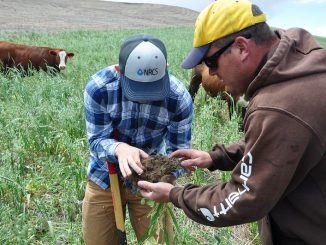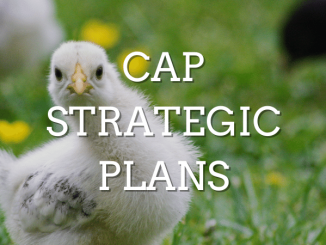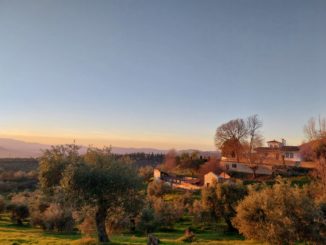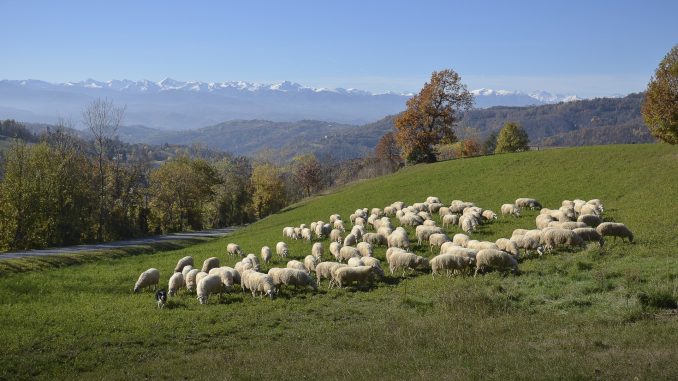
By Emanuele Amo
At Raflazz farm resilience is a way of life. For generations the Adami family has been making artisanal cheese here in the hills of Piedmont. When Italy shut down its restaurants on March 9, the farm had nowhere to sell its cheeses and meat. In another brutal blow, receipts from the farmhouse restaurant and B&B disappeared overnight. Raflazz is adapting fast, but like many small-scale farms it will need life support to survive the lockdown. Emanuele Amo reports from Piedmont.
“In the first days of the emergency, we had about 450 cancellations only from people that should have come from abroad to visit our farm and taste our products. I’m talking about cancellations from March until October.” On the phone the voice of Roberta, young cheesemaker and manager of the Raflazz farmhouse, spells out the crisis in numbers. The voice comes clear and firm, carrying with it all the concern for these troubled times, but also the confidence of those who already have a plan and are used to uncertainty.
Cheesemaking through the Centuries
Roberta is the daughter of Claudio and Anna Adami who have run the farm together for forty years. She is the granddaughter of Nino and Renza who worked at Raflazz from the Second World War in the times when Italy was still a peasant country. And so on, back through the centuries across plagues, wars and industrial revolutions.
People change, but the farm still produces the same cheese from the milk of the Langa sheep, an endangered breed that is typical of the Langhe, the hilly area in the south of Piedmont where Roberta’s family has always lived. They sell not only cheese, but also honey from their 120 hives, and lamb. Since the 1990s the farmhouse has also served as a restaurant and bed and breakfast.
“All these activities have been heavily affected by the lockdown imposed by the government at the beginning of March,” Roberta explains. ‘We had to close immediately the restaurant and the guest house and for the first weeks of lockdown we basically could not sell any of our products.” For local farmers the mechanism of this crisis is dramatic in its simplicity: the story of Raflazz is the story of many other small-scale producers in Italy and across Europe at the time of the coronavirus.
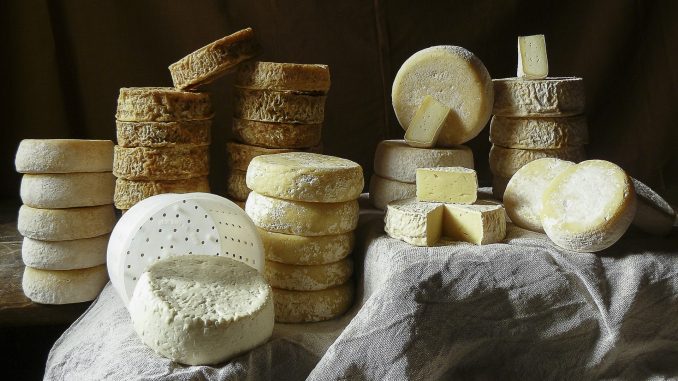
We don’t know how long we can go on like this
In order to limit the spread of the disease, on the 9th of March the Italian government imposed a national quarantine. All non-essential businesses have been closed — including restaurants and hotels. Small farmers like Raflazz can still produce, but their traditional sales channels are locked. Roberta cannot sell her lamb since distributors and buyers have suspended operations. Another problem is fresh cheese such as Murazzano DOP that must be consumed between five to twelve days of production — or go to waste. For weeks the meat has remained unsold. For the cheese Raflazz had to change the production system.
It hasn’t been easy, says Roberta: “Since we cannot sell our fresh products, we have to age the cheese and put it in glass jars. This method of preservation is traditional of this area, but it requires a longer processing time and higher costs of production. So now we are producing big shaped cheeses that have a longer shelf life and need a huge amount of work. Of course, we don’t know if we can sell them after the crisis. In fact, we usually sell immediately the cheese produced in springtime and the sales stop quite suddenly with the arrival of summer and the heat. We are therefore missing one of the best periods of the year for making business.”
Lambing season is between the end of winter and the beginning of spring. Spring is also the season when milk production increases and tourists flock to the countryside to visit farms and pasturelands. For Roberta’s family, this is without a doubt the worst time of the year for an international crisis.
Is it possible to cope with such a crisis? “Yes, it is,” answers Roberta. “For this reason, we have started a home delivery service both for the meals we usually prepare in our restaurant and for all our products. At the start we had a good response from customers and an excellent one during Easter. We try to promote our products online and to bring everything we produce to people’s homes. Rearranging our work was the only way to survive this moment, but we don’t know how long we can go on like this.”
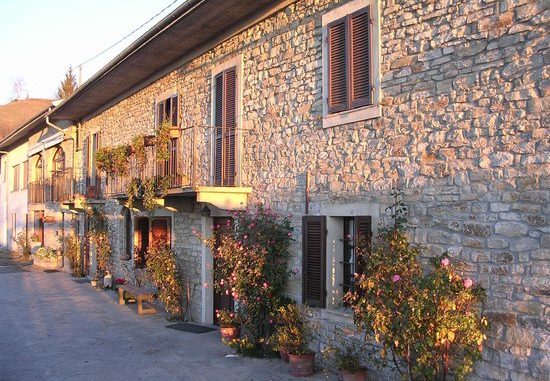
Adaptability has Always been Essential
The Italian government intends to extend the coronavirus lockdown until early May in order to avoid another wave of cases. But in all likelihood the tourist sector — fundamental for small producers — will be one of the last to reopen.
Roberta’s uncle Piercarlo Adami is the local mayor and president of the National Organisation of Cheese Tasters (ONAF). For him the outlook is bleak: “The entire season is compromised at a national scale and there is no point in pretending that there will be a recovery in 2020 for small producers.”
When I ask Piercarlo and Roberta which kind of help they have received from the government and the European Union their answer is: “not much”. Roberta says she has received from the Italian government a self-employed subsidy of €600. So far the EU as not offered any concrete support to small food producers, she explains. “There has been talk of anticipating the EU annual funds for farmers, but then it’s all over there.”
Small farmers are resilient, says Piercarlo: “Small productions live thanks to the entrepreneurial spirit of individuals that must continually find new strategies to survive. Adaptability has always been essential for local producers, see for example what Roberta is doing. It has always been the case, even in the past.”
But Piercarlo, who has an overview of the situation at national level, is disenchanted with the lack of cooperation between small-scale producers: “Every producer has over the time created his own sales strategies as well as outlets and channels for selling products. Unfortunately, also in this occasion there is no common stance on the crisis provoked by the virus and beyond a small solidarity there is no collective attention to deal with this emergency. On the contrary, joint actions to face the lockdown have been developed successfully by big producers.”
When peasant knowledge is lost, there is no recovery
The lockdown goes on day after day. Raflazz’s struggles – like those of thousands of other food producers – have become a daily, lonely fight for survival. This global crisis affects every single aspect of human life. It endangers many traditions and cultures of which farmers have been custodians for centuries. When a local breed is wiped out, or when peasant knowledge is lost, there is no recovery.
Small farmers need solutions to effectively help them survive until the end of the international lockdown and the weeks to follow. But the bitter truth is, if Raflazz does survive, as they have done for centuries, it will only be because they still have the strength and perseverance of those who believe in their work.
 Emanuele Amo graduated in Humanities at the Università degli Studi di Torino (University of Turin), Italy in 2016. In 2018 he received a MSc in Human Geography from the University of Bristol. For his MSc thesis on the Slow Food Movement was awarded by the University of Bristol ‘Outstanding Research Prize 2017-2018’.
Emanuele Amo graduated in Humanities at the Università degli Studi di Torino (University of Turin), Italy in 2016. In 2018 he received a MSc in Human Geography from the University of Bristol. For his MSc thesis on the Slow Food Movement was awarded by the University of Bristol ‘Outstanding Research Prize 2017-2018’.
In September 2019 he begun a PhD in Human Geography at Aberystwyth University. His PhD research relates to a global community of food producers called Terra Madre developed by Slow Food since 2004.
More on Italy
Letter from a Farm – Ruminating on the First Two Years in Italy
#SoilMatters part 2 | Mario Catizzone and Sustainable Soil Management
#SoilMatters part 4 | What do we really lose, when we change how land is used?
More on coping with Covid
IPES-Food on Covid-19: Protect the Vulnerable, Build Resilience, Stay Vigilant
Effects of Coronavirus on Agricultural Production – a First Approximation
Effects of Coronavirus on Agricultural Production – a First Approximation (part 2)
Coping with Covid19 – Mutual Aid and Local Responses in a time of Coronavirus



